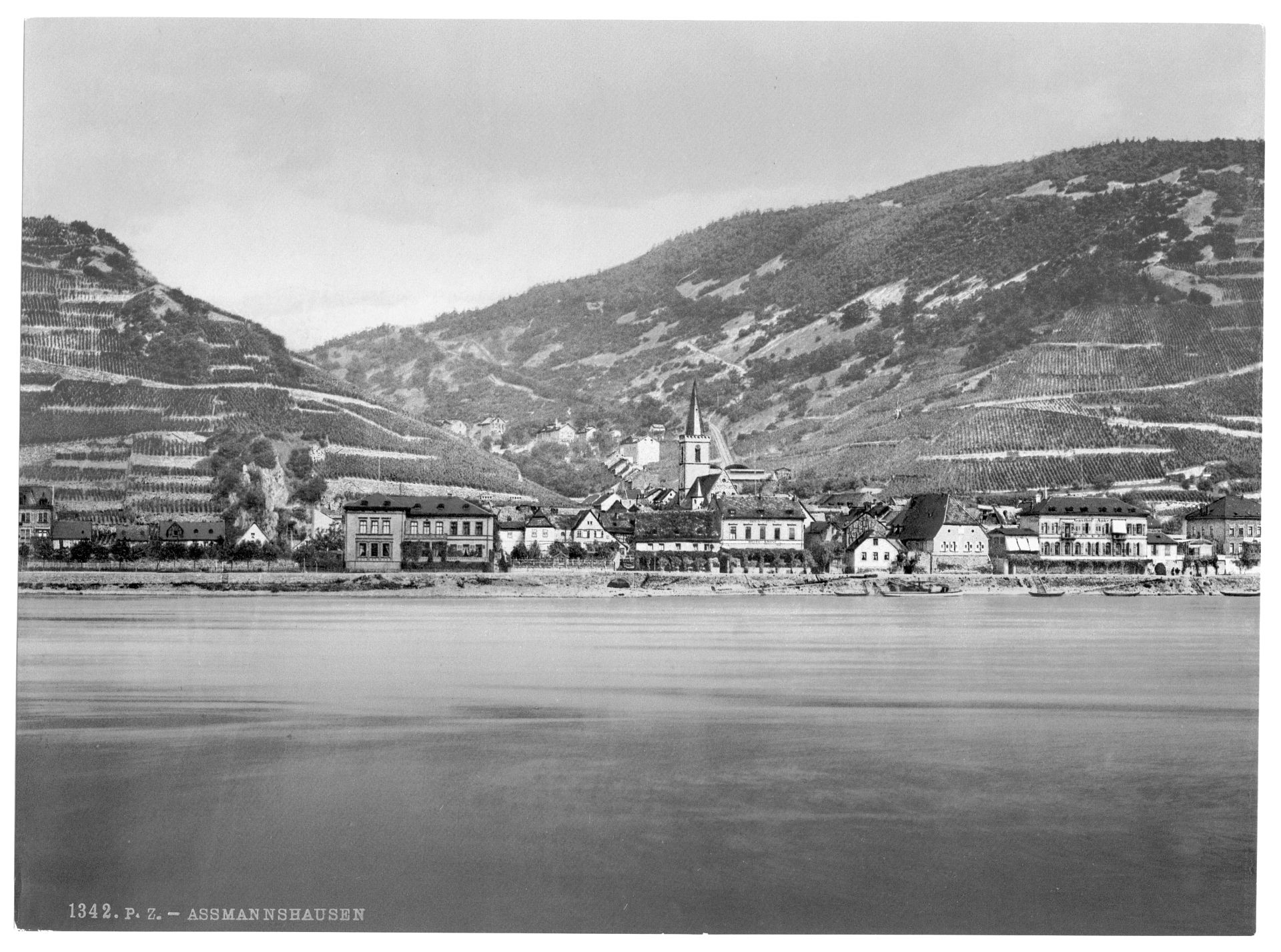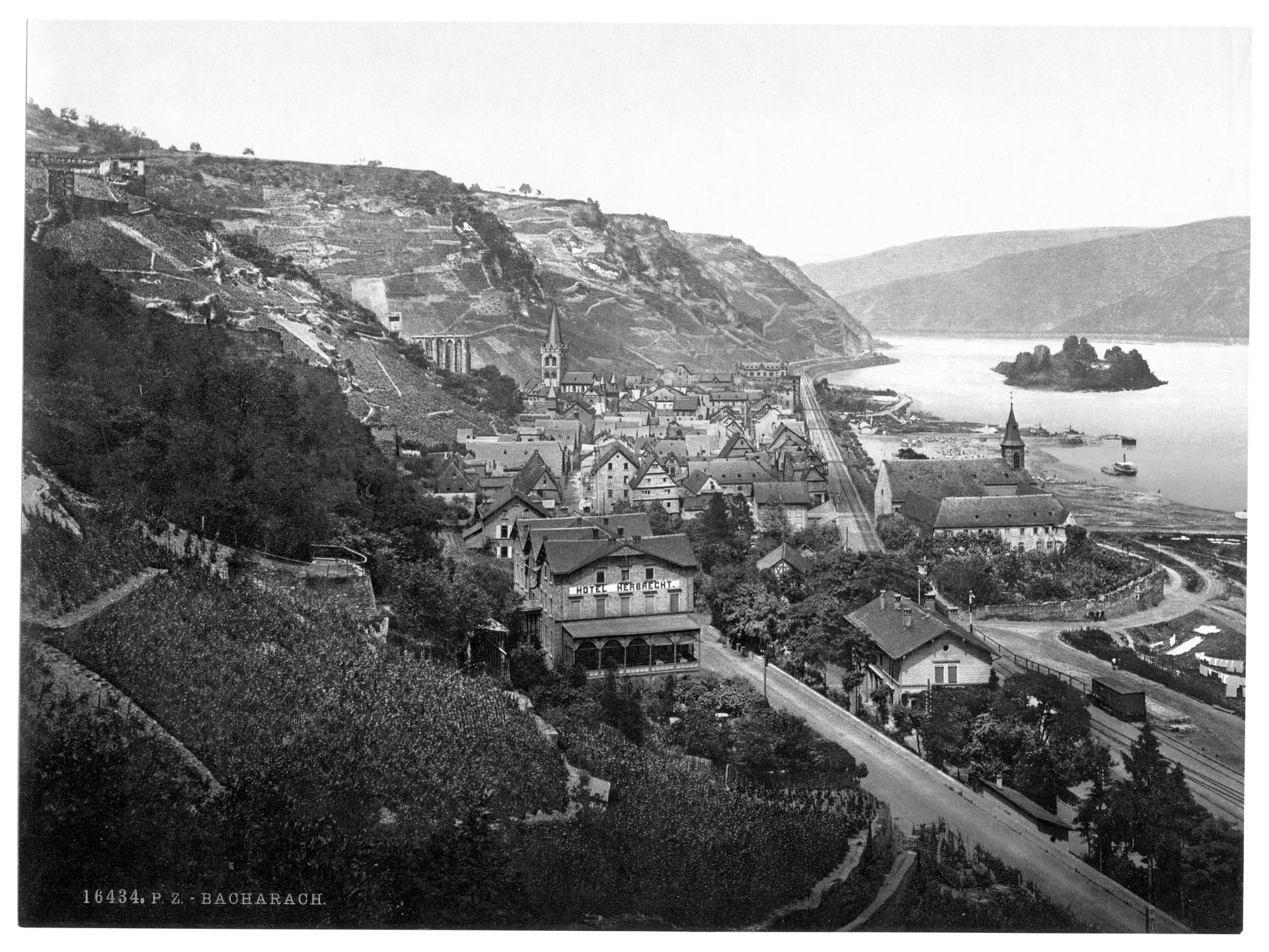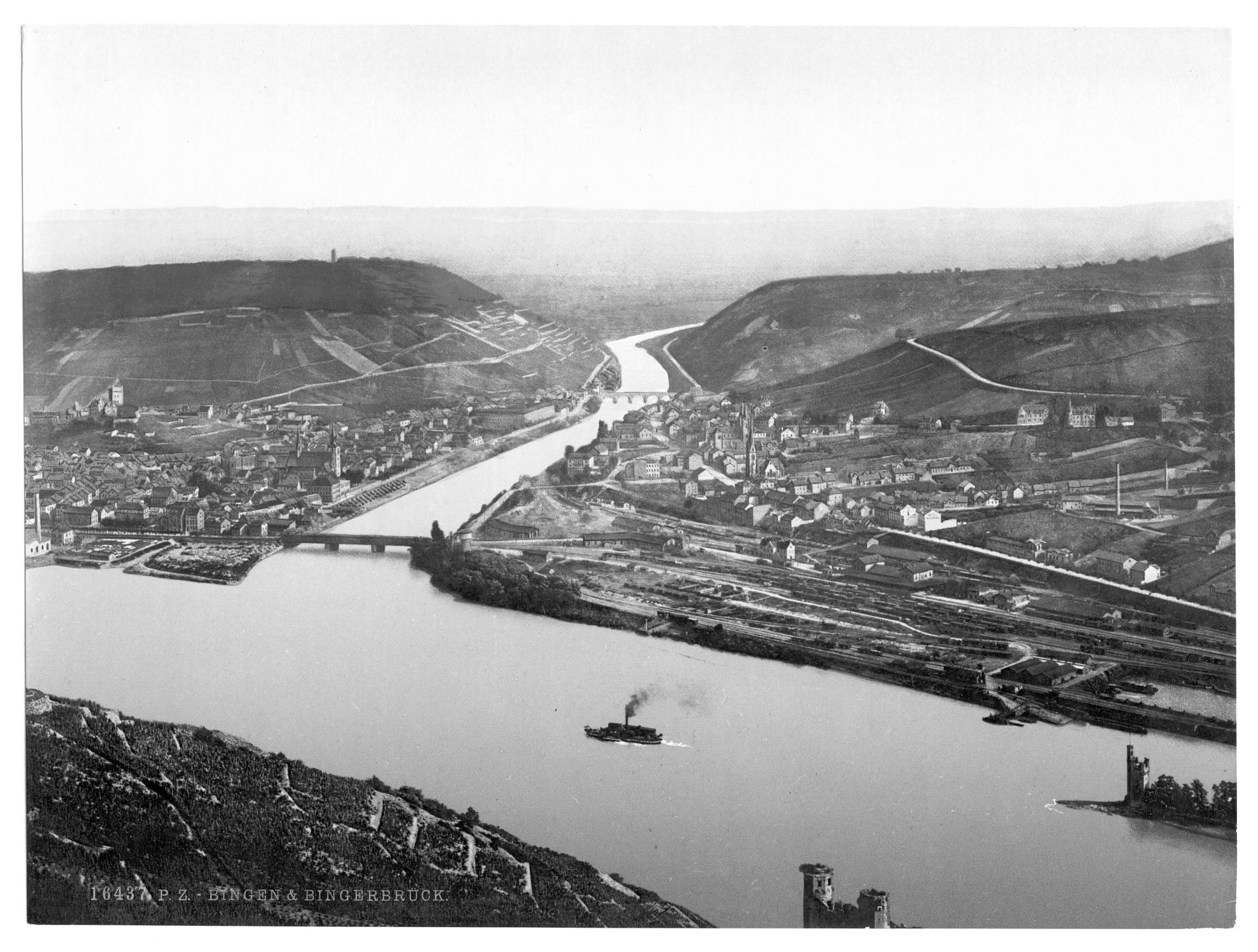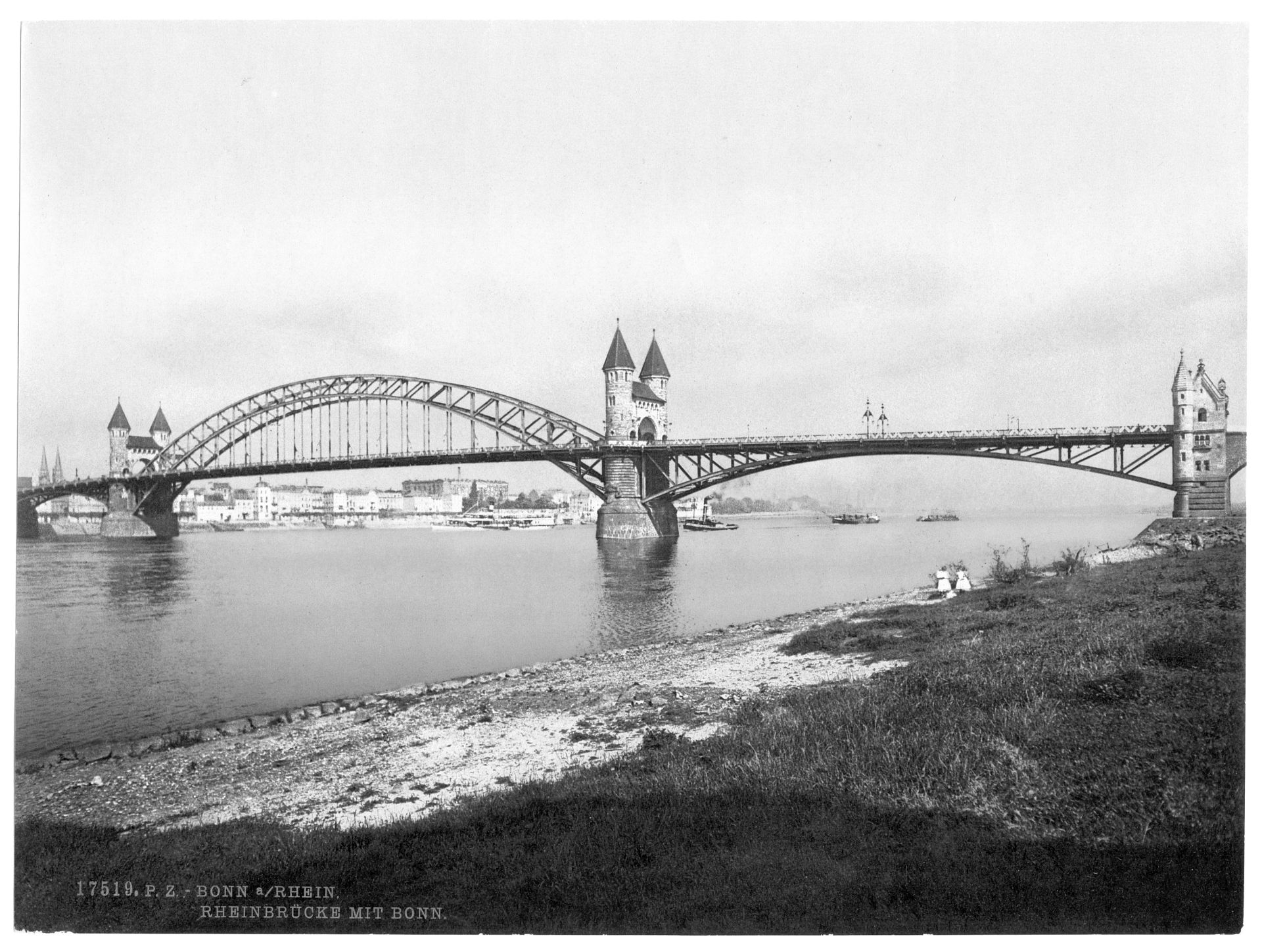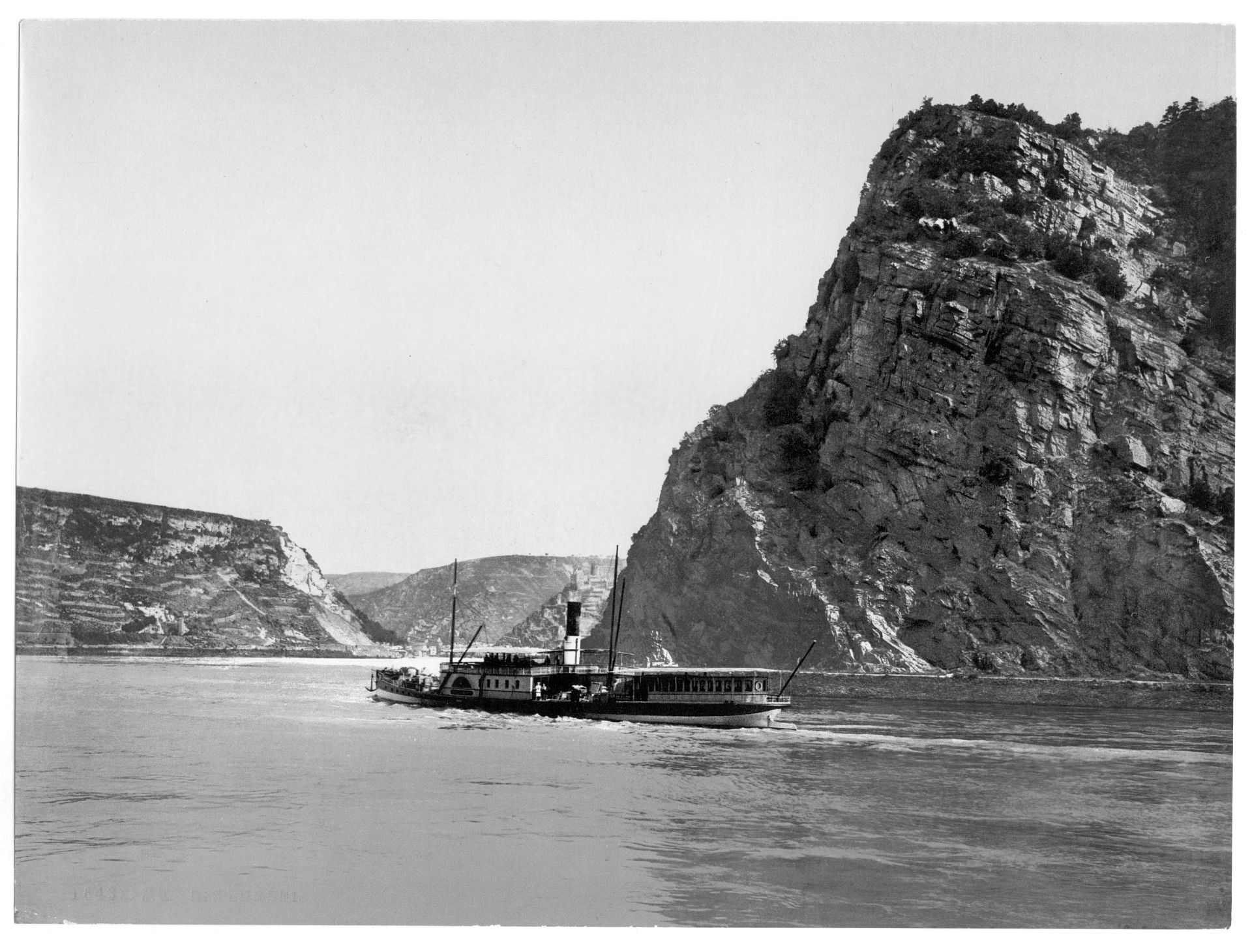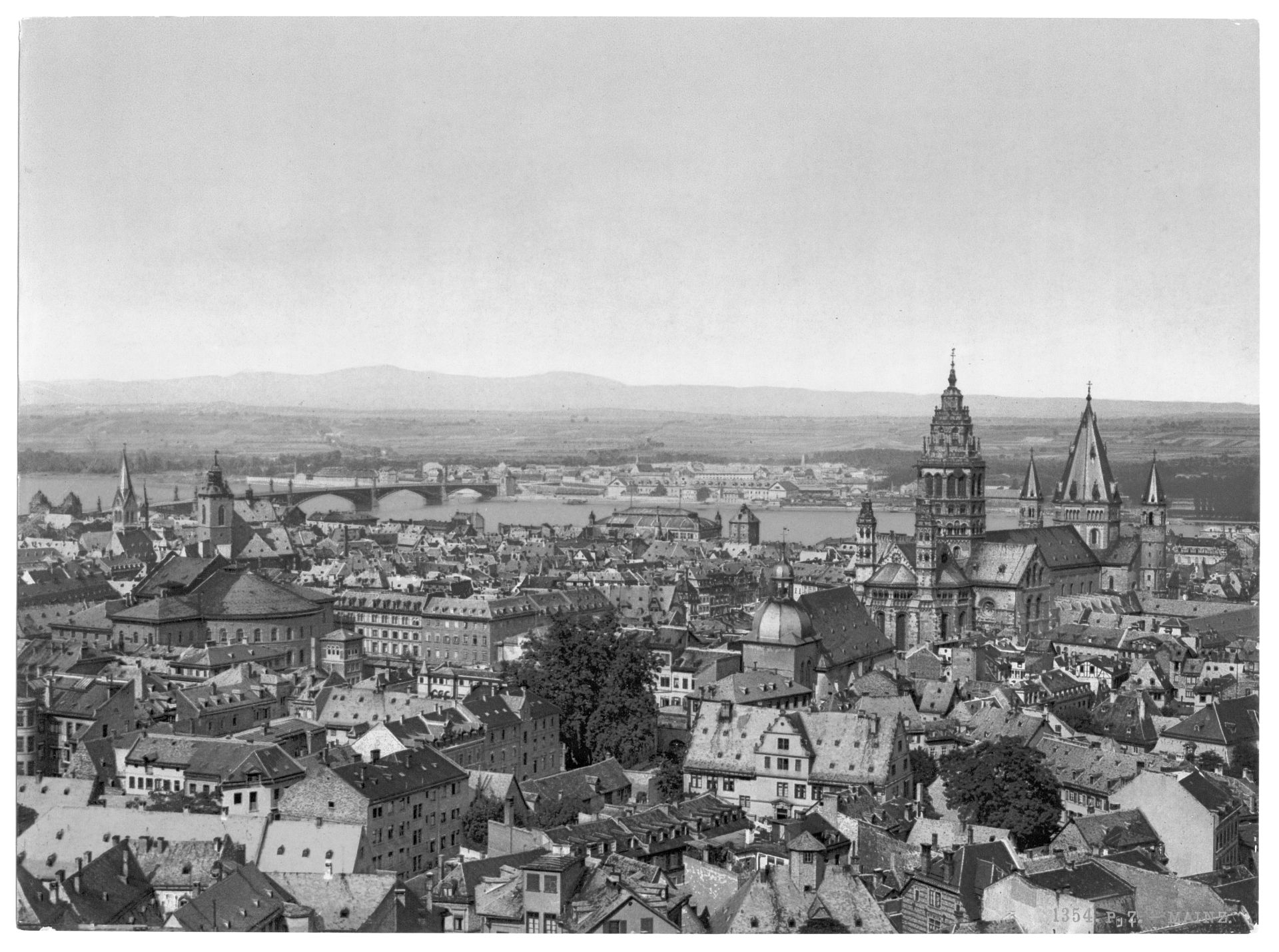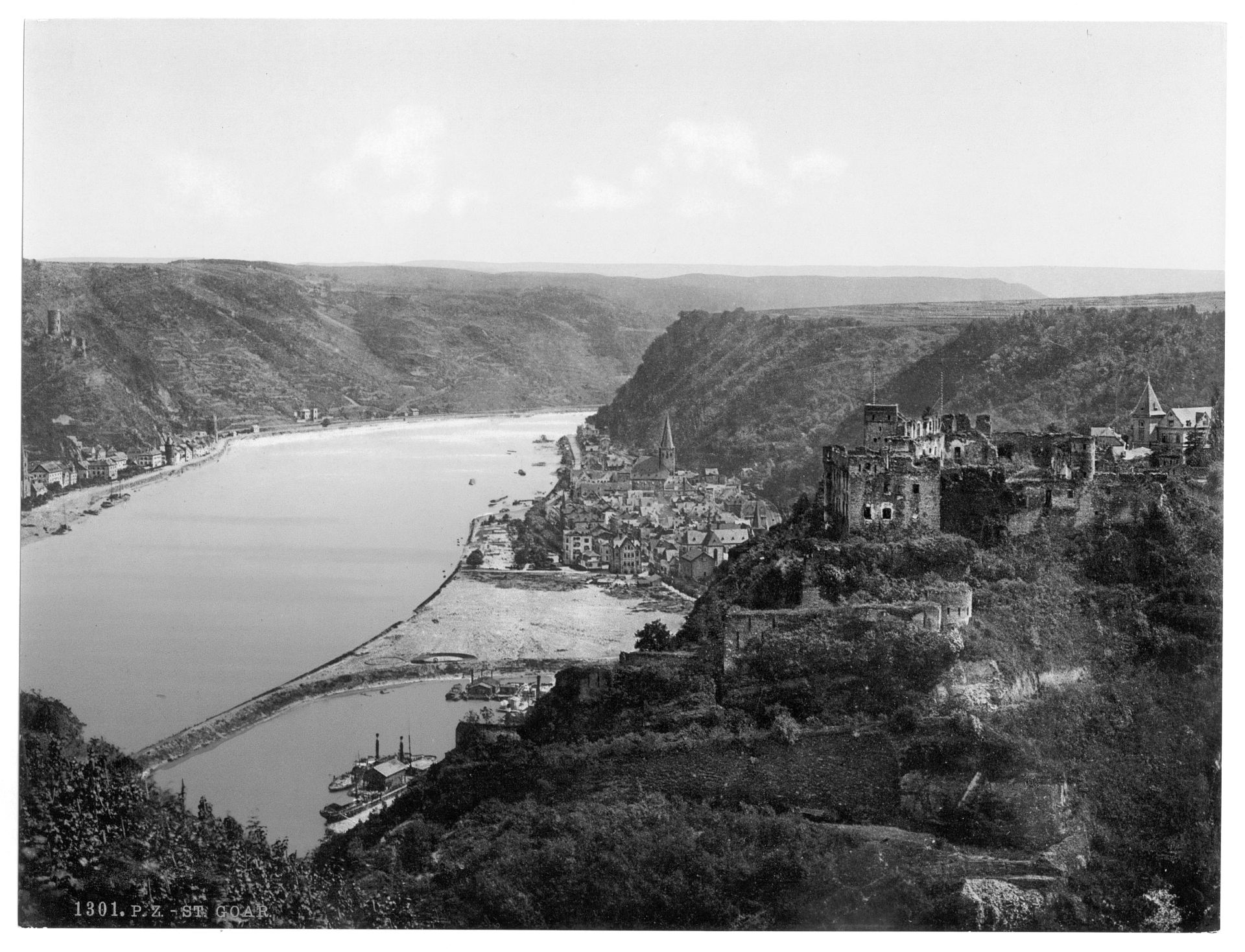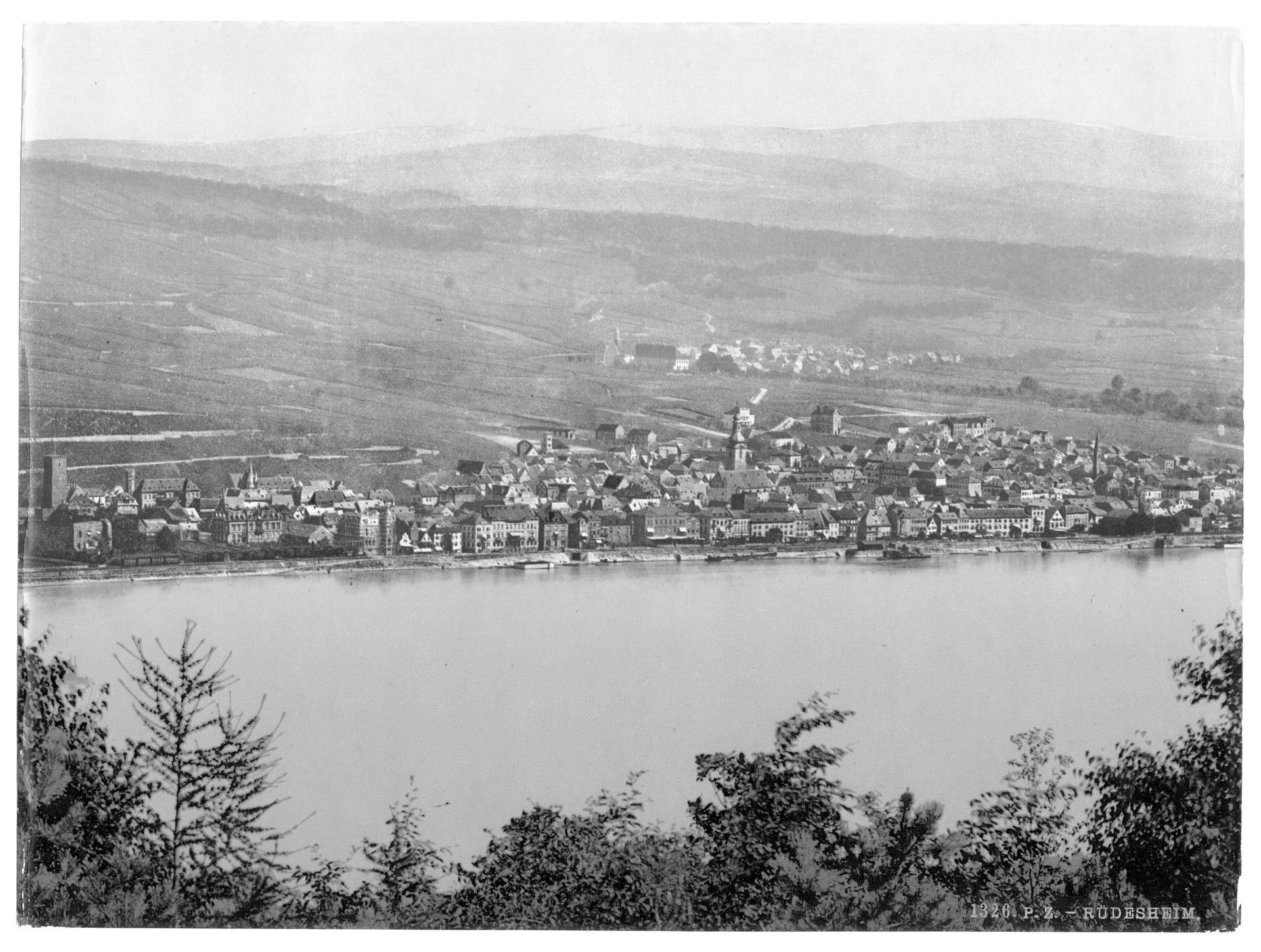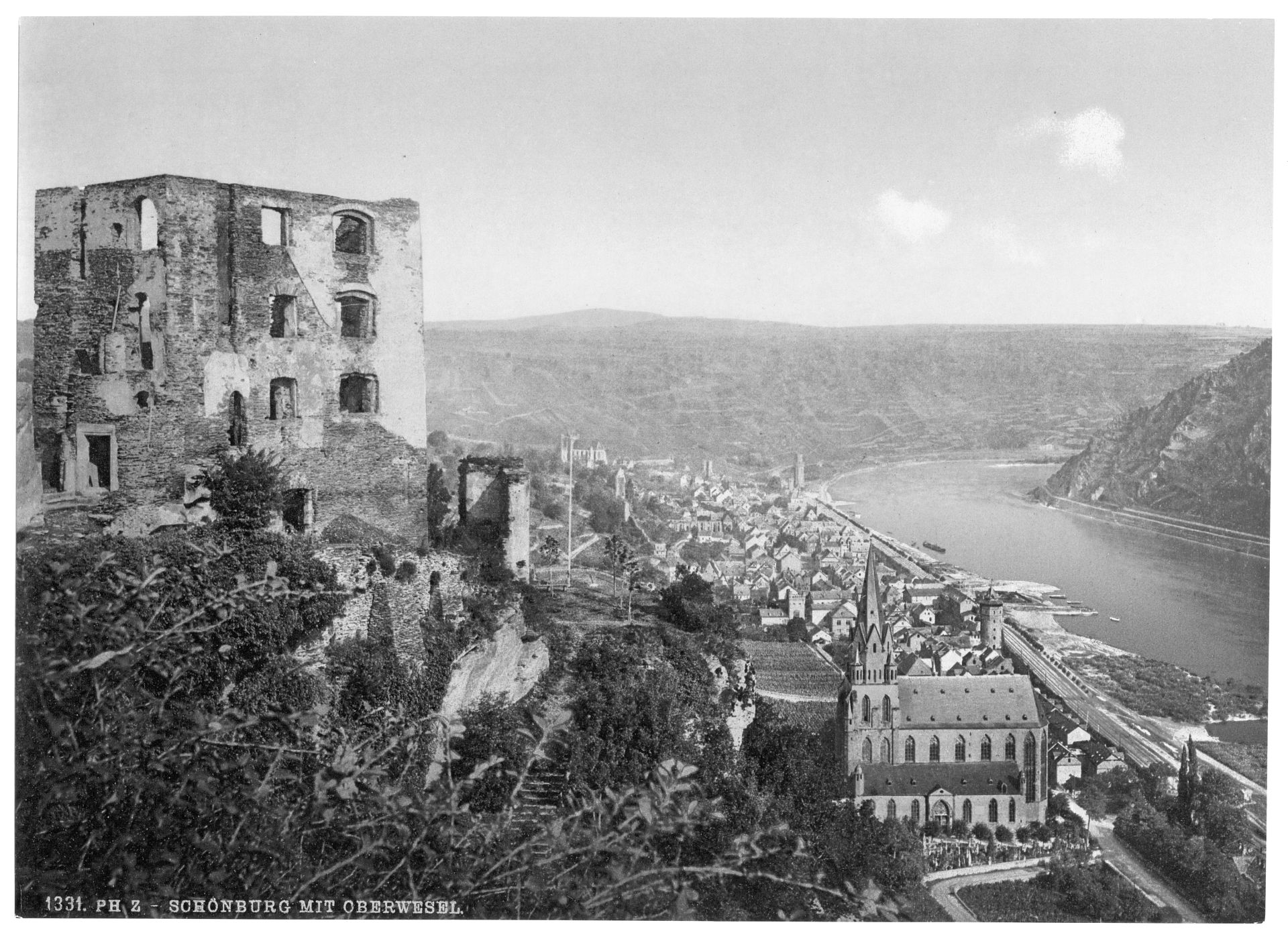The variants of the name of the Rhine in modern languages are all derived from the Gaulish name Rēnos, which was adapted in Roman-era geography (1st century BC) as Greek Ῥῆνος (Rhēnos), Latin Rhenus.
The spelling with Rh- in English Rhine as well as in German Rhein and French Rhin is due to the influence of Greek orthography, while the vocalisation -i- is due to the Proto-Germanic adoption of the Gaulish name as *Rīnaz, via Old Frankish giving Old English Rín, Old High German Rīn, early Middle Dutch (c. 1200) Rijn (then also spelled Ryn or Rin).
The modern German diphthong Rhein (also used in Romansh) Rein, Rain) is a Central German development of the early modern period, with the Alemannic name R(n) keeping the older vocalism. In Alemannic, the deletion of the ending -n in pausa is a recent development; the form Rn is largely preserved in Lucernese dialects. Rhing in Ripuarian is diphthongized, as is Rhei, Rhoi in Palatine. While Spanish has adopted the Germanic vocalism Rin-, Italian, Occitan, and Portuguese have retained the Latin Ren-.



